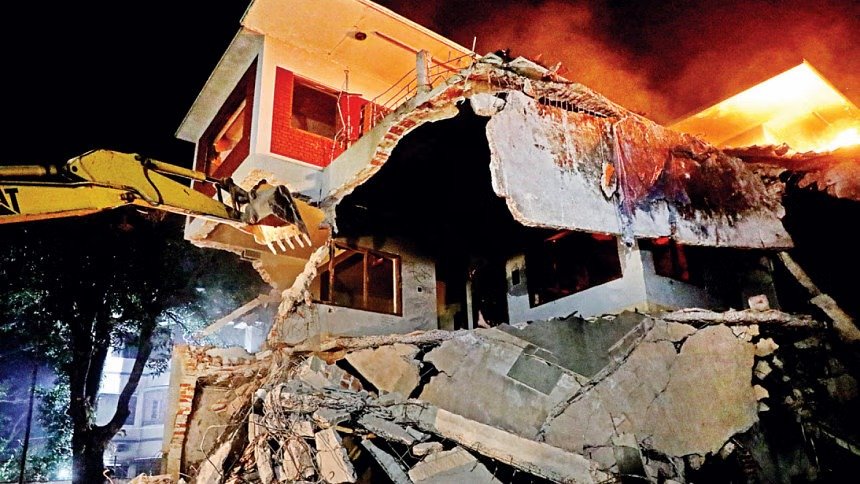The current situation in Bangladesh is at a dangerous crossroads. The rule of law is crumbling, and political repression is escalating at an alarming rate. While the international community has expressed concerns, decisive global action remains absent. The interim government has launched a sweeping crackdown on political opponents, independent journalists, and human rights defenders—an orchestrated assault not just on opposition voices, but on democracy itself. If immediate steps are not taken, the consequences will extend far beyond Bangladesh’s borders, threatening regional stability.
A Nation Under Siege
In recent weeks, opposition leaders, activists, and journalists have been unlawfully detained in a systematic effort to silence dissent. Reports from human rights organizations indicate that these prisoners face severe mistreatment, with growing concerns about extrajudicial measures. The government’s actions point to an unsettling strategy: eliminate opposition not just politically, but physically.
Repression has moved beyond arrests and intimidation. Authorities have begun targeting the homes of political opponents, using demolition as a tool of collective punishment. Among the properties under attack is the historic house at Dhanmondi 32—an iconic landmark deeply tied to Bangladesh’s independence movement. This is not merely political retaliation; it is an attempt to rewrite history and erase the nation’s democratic legacy.
What comes next is even more alarming. The current trajectory suggests preparations for large-scale violence, mass incarcerations, and a deliberate erasure of opposition forces. The international community must act before the crisis reaches an irreversible tipping point.
The Global Consequences of Inaction
Allowing Bangladesh to descend further into authoritarian rule will have dire consequences, both regionally and globally. A nation of over 170 million people facing political collapse poses serious risks to stability, trade, and security. The world must not wait for a humanitarian catastrophe to unfold before responding—silence in this moment would be an act of complicity.
Geopolitical Instability
Bangladesh’s strategic location in the Indo-Pacific makes its stability critical to regional balance. If democratic institutions collapse, foreign powers may exploit the ensuing vacuum, deepening geopolitical tensions. South Asia, already fraught with historical rivalries and security challenges, cannot afford another flashpoint of instability.
A Looming Humanitarian Crisis
Political purges, mass incarcerations, and state-sanctioned violence could soon drive thousands to seek asylum in neighboring countries. A surge in displaced Bangladeshis—particularly toward India and Myanmar—would strain already fragile borders, exacerbating humanitarian crises in the region. The world has seen similar refugee crises spiral out of control before; Bangladesh must not be the next example.
The Risk of Extremism
History has shown that when democratic spaces are crushed, extremist elements often step in to fill the void. The systematic repression of political and civil society actors in Bangladesh could provide fertile ground for radicalization, threatening regional and global security. The consequences of ignoring this risk could be profound.
An Economic Fallout with Global Ripples
Bangladesh’s economic growth has been a success story in recent years, particularly in its garment and manufacturing industries. However, sustained political turmoil will inevitably deter foreign investment, disrupt supply chains, and destabilize the country’s export-driven economy. If multinational corporations begin to withdraw or scale down operations, the economic consequences will be felt worldwide, particularly in the Indo-Pacific trade network.
A Dangerous Precedent for Autocrats Worldwide
If the world allows this authoritarian crackdown to continue unchecked, it will embolden other repressive regimes. Silence in the face of Bangladesh’s democratic backsliding will signal to autocratic leaders everywhere that human rights violations carry no real consequences. The international community must act decisively to uphold the principles of democracy and the rule of law.
The World Must Not Stay Silent
This is a moment of reckoning—not just for Bangladesh, but for the global community. The fight for democracy in Bangladesh is a fight for fundamental freedoms, justice, and human dignity. No dictatorship can survive without fear—but fear thrives only when the world remains silent.
Bangladesh’s descent into repression is not just a national crisis; it is a test of the international community’s commitment to human rights and democracy. The time for statements of concern has passed. The world must act—before the consequences become irreversible.


